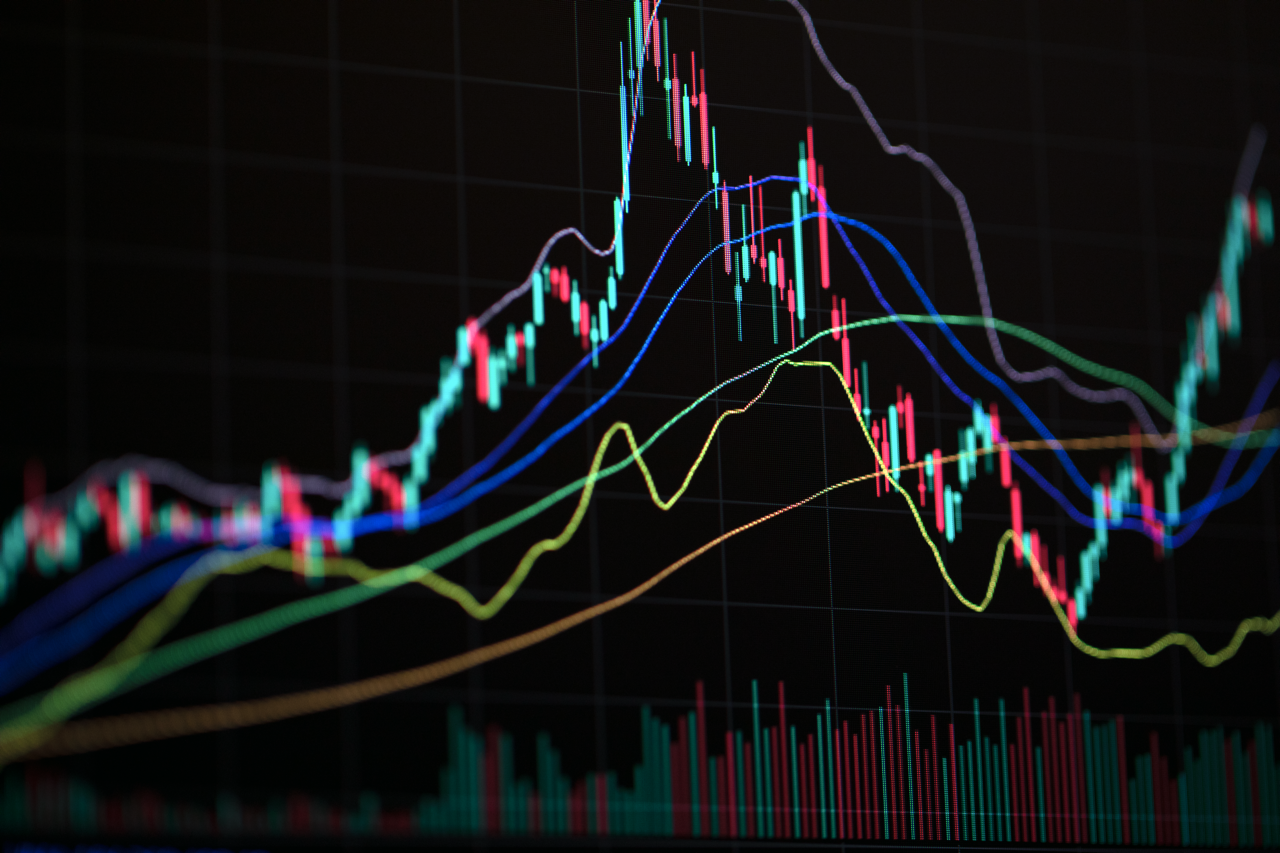Quarterly Investment Review: Q3 2024
Welcome to the Quarterly Investment Review for Q3 2024.
Our Investment team have put together a range of resources to update you on what has happened in the markets across the third quarter of 2024. Here you will find:
- A listed summary of the major events impacting markets
- Videos from our team of investment experts
- A written commentary

Hear from our team:
Elections & Interest Rates
Elections have taken place in the UK, across Europe and America’s is yet to come but how does our investment team deal with the ever-changing political environment alongside movements in interest rates. Hear from Head of Investment Management, Antony Kelsey and Portfolio Manager Sean Mills.
The Rise of Everyday Robots

Frequent visitors to the Isle of Man will undoubtedly have encountered the state-of-the-art Robo Waiter that glides around local bar and restaurant, 1886, delivering drinks and meals with mechanical precision. While some unsuspecting punters are left wide-eyed and slack-jawed as a Robotic Waiter ambles towards them with its friendly demeanour, others seem to hiss at it like it’s the villain in a sci-fi movie, muttering about robots taking everyone’s jobs.

Love it or loathe it, automation, autonomous vehicles, and autonomous machinery are likely to become part of our everyday lives. So, whether you’re ready to embrace our new robot overlords or still clutching your human waiter in defiance, one thing’s for sure: the future is rolling in, one Robo-waiter at a time!
We often look to the US when it comes to the latest technology trends, and this industry is no different. Right now, all eyes are on the potential market for so-called “Robotaxis.” In a recent Citywire article, Cathie Wood, the ARK investment chief, estimates that robotaxi platforms could create a whopping £21 trillion in enterprise value over the next five to ten years. Those numbers might seem astronomical, but maybe not so unrealistic when you consider that Alphabet’s autonomous driving company, Waymo, is already operating its robotaxi solution in four US cities 24/7, racking up 100,000 paid trips per week. Meanwhile, over in China, Baidu’s Apollo Go is cruising around one city. And let’s not forget, Tesla hasn’t even launched its robotaxi solution yet!
Of course, there are some question marks in the public’s mind about the safety of Robo Taxis. But forecasts suggest that accidents in autonomous vehicles are likely to be significantly lower than those with human drivers. This is because the technology allows for more sensors, cameras, and AI that can perform more reliably, accurately, and quickly than humans. There’s also a psychological barrier to overcome when you sit in a car that drives itself! But hey, we’ll get there.
Technological advancements are relentless, and with the wide applications for this particular technology implementations are occurring quickly. So, it seems to be only a matter of time (and probably not very much time) before these robotaxis become a lot more widespread. Why? Quite simply: cost! A safer, round-the-clock, driverless vehicle is considerably more cost and operationally efficient, and with the price of this technology only going down and its capabilities only going up, it’s easy to see the attraction and the growth opportunity.
Applications for this technology will also extend to businesses like McDonald’s, Amazon, Tesco, and many more. So, expect all manner of Robo colleagues to be part of a larger family in the Isle of Man before long!
Q3 Commentary
Summary & Outlook - Q3 2024:
Markets made further progress in the third quarter, albeit this was punctuated by bouts of severe volatility. Selloffs arrived at the start of both August and September, with markets rallying throughout the rest of these months.
The difference in progress in different regions was marked on this occasion. The MSCI ACWI World index rose 6.2% in US Dollar terms – however, the same index in GBP terms was marginally flat at 0.2%, a function of the radical weakening of the Dollar in the period which declined over 5% against a basket of other currencies.
This was driven by fears emerging of a slowing in the US economy. The Dollar has been one of the strongest global currencies in the past two years, given the rapid rise of interest rates there. However, as Non-Farm Payroll job figures started to come in below expectation from mid-summer onwards, with downward revisions to prior months that had been reported earlier this year, the currency started to trend downwards. In early August US unemployment rose to 4.3% in the wake of weaker than expected job growth which triggered fears over the Sahm Rule (a 10% rise in unemployment in six-month period preceding a recession).
The weakness in the currency was mirrored by a decline in US government bond yields, with the 10-year Treasury yield declining from 4.4% at the end of the second quarter to 3.7%, a fall of 70 basis points. It was notable that most of this decline came in July, anticipating a weak July jobs report in the first week of August that rattled sentiment.
There was notable strength in the resurgence of Chinese onshore and Hang Seng markets during the last week of the quarter which came as a welcomed surprise. The Chinese Central Bank and Politburo announced and implemented a series of significant monetary and fiscal stimuli, resulting in the equity markets achieving their highest weekly gains in 27 years. Their aim is to avert slow growth and return to a 5% growth target for this year.

A contrast in monetary policy was also a feature in this quarter. The Bank of England surprised markets by cutting rates from 5.25% to 5% in early August. Expectations rose over the period of US policy cuts – confirmed when the Fed cut by an outsized 0.5% on September 18th. The ECB had cut again the previous week, though the BOE refrained in September. Meanwhile, in Japan the BOJ raised interest rates for the first time in 15 years to 0.25%, causing the Yen to surge and a ‘flash crash’ drop in the Nikkei of 12% which was bigger even than the fall after the Fukushima nuclear disaster – though the market did largely recover the following day.
Politically there was some turmoil. Elections in France and Germany showed support for the Far Right, while the Labour party was returned with a huge majority in the UK. Joe Biden, the incumbent President of the United States, announced his withdrawal from the 2024 United States presidential election in July – endorsing Vice President Kamala Harris as his replacement. Earlier there had been a failed assassination attempt on Donald Trump.
With the US presidential election just three months away, the race between Vice President Kamala Harris and former President Donald Trump is more balanced than ever. We highlighted some of the key policy differences below:
Kamala Harris: Regulatory and revenue constraints for banks, internet-service providers, and health insurers. Enhanced standards and regulations.
Donald Trump: Potential tax cuts for electric-vehicle makers. Increased mergers and acquisitions (M&A). Eased bank-capital restrictions. Regulatory rollbacks and executive orders to undermine the Affordable Care Act and reduce tax credits for renewables.
Executive Orders: If Trump wins, he may swiftly implement changes through executive orders, including narrowing big tech’s liability shield and altering healthcare and renewable energy policies.
Tax Cuts: The expiration of the 2017 Tax Cuts and Jobs Act provisions in 2025 makes this election pivotal for future tax policies, particularly for asset managers and real estate firms.
Stocks broadly beat Q2 earnings expectations as companies not tied to artificial intelligence returned to growth for the first time in more than a year. While the gap between the AI haves and have-nots continues to shrink, our view is that stocks exposed to artificial intelligence are poised to grow at a stronger pace into the end of the year.
However, it’s more a case of earnings being brought forward, with the expectation now for a deceleration in 2025 due to harder comparisons against 2024. Outside the US, Japan has led earnings growth strength, with nearly 9 out of 10 companies beating estimates. Emerging Markets earnings were a little weaker, with only 6 out of 10 companies beating estimates, according to Bloomberg.
Sustainability Report
We recently released our Conscious Capital Sustainability report for 2023.
Through Conscious Capital, our mission is to become Net Positive by sustainably creating positive value for all our stakeholders, and in so doing, reduce the impact of our business activities on the environment and have a positive impact on our society.
This report covers the sustainability initiatives that have taken place and, in many cases, are still taking place across the business, including a section on Sustainable alpha, our discretionary investment management approach. Please click the link to access the Conscious Capital Report.
Disclaimer: The views, thoughts and opinions expressed within the article / video are those of the author / speaker(s) and not those of any company within the Capital International Group (CIG) and as such are neither given nor endorsed by CIG. Information in this article does not constitute investment advice or an offer or an invitation by or on behalf of any company within the Capital International Group of companies to buy or sell any product or security or to make a bank deposit. Any reference to past performance is not necessarily a guide to the future. The value of investments may go down as well as up and may be adversely affected by currency fluctuations. CIG, its clients and officers may have a position in, or engage in transactions in any of the investments mentioned. Opinions constitute views as at the date of publication and are subject to change.
Regulated investment activities are carried out on behalf of Capital International Group by its licensed member companies. Capital International Limited and Capital Financial Markets Limited are licensed by the Isle of Man Financial Services Authority. Capital International Limited is a member of the London Stock Exchange. CILSA Investments (Pty) Ltd (FSP No. 44894), trading as Capital International SA, is licenced by the Financial Sector Conduct Authority in South Africa. All subsidiary companies across both jurisdictions are represented under the Capital International Group brand.














